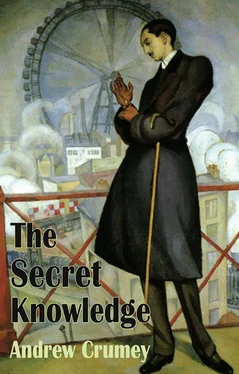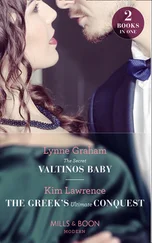After the miscarriage she decided she would go against her parents’ wishes, give up the English degree she had started and study piano full-time instead. She’ll be left heavily in debt and with little prospect of a career, but she’s determined that as long as she has wings she’ll use them.
She’s heard that Mr Conroy can be difficult, he wasn’t on the panel when she did the college audition and really she doesn’t need to impress him, she’s been accepted on the course and his job is to help her improve. But she wants to do well. She turns from the dead bird and walks on. Children will find it, poke it with sticks; at night it will be removed by a fox or rat, or else simply rot there, eaten by maggots.
At the hospital she told them she hadn’t realised she was pregnant, it was still so early, but she’d felt unwell with pain in her lower back, then it came out in the toilet, a formless lump like a pink cabbage stalk, she had to fish it out and couldn’t believe what it was until she saw fingers, a tiny red-lined fist. They asked if she’d like to have counselling and she said no, then they took the cabbage stalk and put it in an incinerator.
Outside the college there’s another protest. Half a dozen students are demonstrating against capitalism, cuts, whatever. They’re standing on the broad steps of the pompous Victorian building, politely gathered to one side so as not to cause an obstruction.
“Hi, Paige,” says a skinny guy in red-tinted shades and a Hollister beanie, his placard painted with large lettering. She smiles as she goes past to the revolving door. Can’t remember his name.
The lobby’s busy, it’s changeover and people are heading for their next class, she pauses to let a chattering crowd go by and finds herself beside a display case, relics glorifying past successes, famous alumni. A century-old sepia photograph shows the entrance hall she stands in, same ornate arch and marble staircase but with an earlier generation of musicians posing smartly on it, young like her yet all now dead. Crossing the lobby, her view captures a boy reading the notice board, another with his cello case, two girls texting silently side by side, a seated man wearing an eye-patch. On the stairs there’s a fallen sheet of paper, a page of manuscript lost from a composition assignment. She considers picking it up, handing it in, but hurries on.
She finds the room, no one’s there, she waits at the door until he arrives, brusque Mr Conroy carrying a bundle of music scores. Tall, dark haired, not bad looking for his age, but tired. He unlocks the door and waves her inside, tells her to sit at the further of two grand pianos whose keyboards stand side by side like office desks. He isn’t strong on introductions or small-talk, hasn’t even confirmed who he is, but this is the one who will train her, a man with medical detachment, polite, distant. This, she thinks, must be what she needs. The room’s plain white walls, geared to acoustics rather than visual appeal, add to an atmosphere of scientific enquiry.
“How long have you been playing?”
“I started when I was four.”
“How long is that?”
“Sixteen years.”
“And what have you done?”
She tells him about the lessons, certificates and school competitions, her schedule of practice and the degree course she gave up because music is all that matters to her. He’s more interested in knowing who’s been teaching her, he doesn’t recognise any of the names.
“Play something,” he instructs, then goes to stand at the window, looking out while she begins her audition piece, Chopin’s Barcarolle . She’s unfazed by his manner and performs perfectly, though after a while he suddenly makes her stop. “What chord was that?”
She has to think for a moment. “A sharp major.”
“Why?”
She doesn’t understand. “What do you mean, why?”
“What’s it for?”
Another moment’s thought. “It’s a modulation to D sharp minor.”
“And when you switched course, was that a transposition from one place to another, or did it mean something?”
He’s saying that she plays without meaning. She thinks of the dead bird.
“Can you give me some Beethoven?” he asks, and she offers the ‘Waldstein’ Sonata. This time he lets her play for longer, she feels she’s doing well, but the question haunts her: why? And always at the corner of her vision she can see him gazing through the window, as though asking that same question.
Something gets made by accident, a pink lump of nothing, then it’s burned in an incinerator and becomes another kind of nothing. Notes of music are written, performed, vanish like smoke. As she reaches the end of the exposition Conroy interrupts, “That’s enough.” She stops, waiting for his opinion, pained by the silence that follows. Then he turns and tells her, “That was good.”
She feels a rush of relief and gratitude.
“But we’ll have a lot of work to do. How did you first encounter the piece? Playing or hearing?”
“CD.”
“Who?”
“I don’t remember.”
“When I was ten my parents gave me the LP by Wilhelm Kempff.”
In his expression she sees something of the proud and lonely boy he must have been.
He says, “First time I heard it I thought: this can’t possibly be right, this strange sound starting to come out of the record player, not a tune but a single quiet chord repeated again and again. I even thought the needle might be jumping. You see how important it is, that first moment?”
He sits at the other piano, deposits his scores on the closed lid then plays the opening, more slowly and softly than Paige did, making it seem unexpectedly mysterious. He stops suddenly and says, “What does it make you see?”
She doesn’t know how to answer, the picture in her mind is the studio of her former music teacher Mrs Fleming, heavy rain outside, her period that was starting. “A river,” she suggests.
“Adorno said it made him think of knights in a forest.”
She doesn’t know who he’s referring to, the puzzlement on her face must be evident.
“You haven’t heard of Theodor Adorno? German philosopher and musician, Thomas Mann’s friend.” She’s still blank, and Conroy says, “When I was a student we got a lot of Adorno, one of the lecturers was really big on Marxist philosophy. You see, Adorno could still hold on to his childhood idea, even when he was reflecting on Beethoven as an adult. Two completely different views of the same object. That’s how you can keep it new. Your playing doesn’t sound new, it sounds rehearsed. Too loyal to the score. Have you got a piano at home?”
“Only an electronic one. I’m in a flat.”
“Do you live alone?”
The question feels abruptly personal. “No. But my flatmate’s mostly away.”
“I got back from touring and found my partner had walked out.”
Paige shifts uncomfortably. She says nothing.
“Really I’d been alone all the time. Pianists, we’re solitary by nature.”
“Not necessarily.”
He looks surprised. “Maybe you don’t feel it yet. You will, if you carry on. But we need to strengthen the left hand. And the pedalling was all over the place.” He’s looking at her arms and legs, dissecting her. “What’s your ambition?”
“To play better.”
“Why?”
“It’s what I love.”
His brow rises. “The word amateur means doing it for love; this place is meant to train professionals.”
“I don’t care about that.”
“Love can break your heart.”
“It’s worth the risk.”
He smiles. “I like that. Too many artists don’t take risks, they find something they’re good at and keep doing it the same way forever.” He stands up. “Play me something you love.”
Читать дальше











